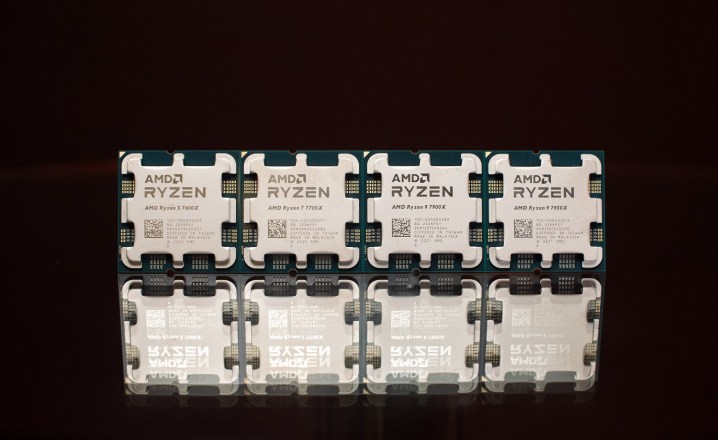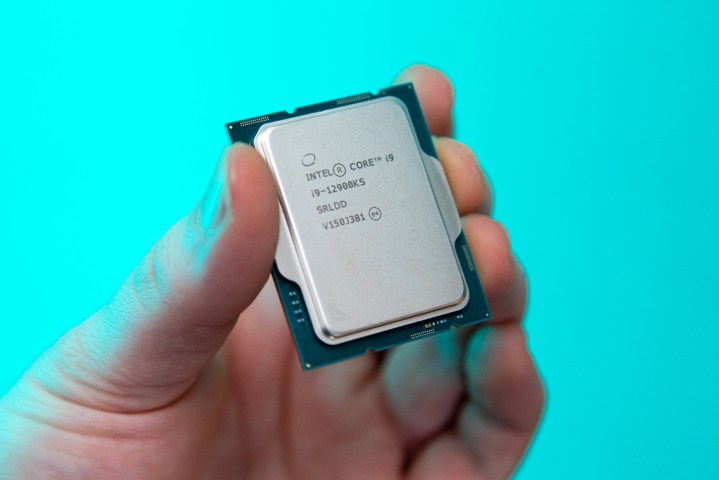AMD has officially pulled back the curtain on its Ryzen 7000 CPUs, and among all of the specs and projected performance lies an interesting change: pricing.
If AMD’s claims are true, Ryzen 7000 should be a massive win for performance, outpacing even Intel’s Core i9-12900K across the product stack. Despite that, some of the new processors come with price decreases, which is not what we normally see.
In particular, the Ryzen 9 7950X is $700, which is $100 less than the Ryzen 9 5950X launched at. The Ryzen 7 7700X is $50 less than last-gen’s Ryzen 7 5800X as well, clocking in at $400.
A welcome and predictable price cut

The price cuts are an interesting and almost confusing move on the surface. AMD raised prices across the board by $50 with the launch of Ryzen 5000, and rumors have been flying that Ryzen 7000 would receive a price increase as well.
Still, AMD’s decision didn’t come out of left field. There was a wave of backlash after the price increases with Ryzen 5000, as AMD has traditionally been the budget alternative in the AMD and Intel duopoly. The Ryzen 7 5800X was a particular pain point, as it offered little improvements over the Ryzen 5 5600X, despite costing $150 more.
“We’re trying to get people excited about building PCs.”
It’s clear that AMD learned its lesson. It’s impossible to know the specific numbers for how many Ryzen 7 5800Xs and Ryzen 9 5950Xs AMD sold, but the price cuts suggest these two processors sold far less than the Ryzen 5 5600X and Ryzen 9 5900X. The price cuts are an acknowledgement that AMD screwed up launch pricing last generation, and we rarely see practical improvements following such criticism (especially criticism that happened two years ago).
Another way to read the price cuts is that AMD isn’t as confident with Ryzen 7000 as it was with the previous generation, but that doesn’t seem like the case. AMD is claiming a 13% uplift in instruction per clock (IPC), a generational single-core improvement of 29%, and up to a 49% improvement over Ryzen 5000 at the same power draw.
During a Q&A following the presentation, AMD CEO Dr. Lisa Su contextualized the price cuts: “We’re trying to get people excited about building PCs.” Hopefully, that’s the main reason AMD decided to drop prices.
Getting competitive with Intel

The price cuts are interesting in AMD’s product stack, but they’re even more interesting compared to Intel. AMD has been pushing prices up for the last few generations, while Intel has been forced to make price cuts in order to stay competitive. AMD’s new price cuts stack on more pressure.
Now, AMD is competing with Intel on price across the product stack. Both the Intel Core i5-12600K and Ryzen 5 7600X are $300, and the Core i7-12700K and Ryzen 7 7700X are $400. For flagships, it seems AMD split the difference on the $600 Core i9-12900K, offering a chip at $550 and one at $700.
With Ryzen 5000 and Intel Alder Lake, there was a clear trajectory in place. AMD would push prices up as long as it could dominate in performance, while Intel would cut prices to claim back lost market share. That’s not how the story is playing out, though.
It seems AMD is attempting to bring the scales back in balance.
In a strange twist, AMD is forcing Intel’s hand to move to even lower price points. Building a PC has continued to get more expensive, and next-gen GPUs and CPUs seemed destined to push up the cost even higher. By cutting the price of Ryzen 7000 chips, it seems AMD is attempting to bring the scales back in balance.
Pricing always comes with context, though. Although AMD is bullish on Ryzen 7000’s performance now, we’ll have to wait until the processors are here to see if the price cuts are as significant as they seem. If AMD’s numbers are accurate, I suspect we’ll see major cuts in pricing on 12th-gen Alder Lake processors, especially as Intel prepares its 13th-gen Raptor Lake chips.
Regardless, it’s a good time to be a PC enthusiast. It doesn’t matter if AMD or Intel comes out on top next generation. The Ryzen 7000 price cuts are a sign that, if AMD and Intel can achieve performance parity, both companies are willing to sacrifice on price to gain an edge. And that’s a good thing if you’re in the market for a new processor.




